Blog

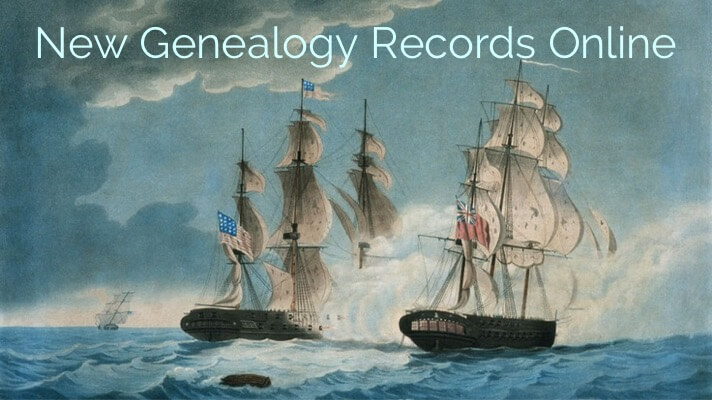
New U.S. WWI Military Records for Genealogy
Topping the list of new and updated genealogy records this week are United States military records. Ancestry.com has a new collection of U.S. Navy Muster Rolls and an updated collection of historical postcards. Enjoy a special interview with military expert Michael Strauss on how he solved an old postcard mystery! Also new this week are WWI U.S. records at FamilySearch for Michigan and Utah, which you can access for free online.
Featured: U.S. Navy Muster Rolls
Ancestry.com has a new collection of U.S. Navy Muster Rolls, 1949-1963. From the description:
Historical Postcards
Ancestry.com also recently updated their collection of U.S. Historical Postcards, 1893-1960. You might be wondering how historical postcards would be valuable to your genealogy research. The collection description sheds some light on what you can use this database for:
“This database contains over 115,000 historical postcards with photos of places in the United States. Each postcard caption has been indexed and may be searched by keyword or location. The database also includes the city, county, state, and postcard era (estimated year range) for most postcards.
This database is primarily useful for obtaining a photograph or picture of a specific place in time. If you do not already have pictures of the places your ancestors lived, historical postcards are a good alternative to personal photos.”
In the video below: A captivating story unfolds of old postcards from WWI that are snatched from oblivion by Michael Strauss, who is the Genealogy Gems Podcast Military Minutes man. Michael shares the story of how he found the historic postcards on eBay, and the research process he followed to identify their author. These are strategies that you can use in many areas of your family history research!
FamilySearch
You can explore even more new WWI records for genealogy thanks to FamilySearch’s newest additions to their free records.
- Michigan, Census of World War I Veterans with Card Index, 1917-1919
- Utah, World War I County Draft Board Registers, Name Index, 1917-1918
- Utah, World War I Service Questionnaires, 1914-1918
These records may help you find out more about your ancestors who served in the military during WWI. Depending on the collection and record, you might find:
- name of Veteran;
- serial number;
- address;
- place and date of birth;
- nationality;
- color;
- occupation before and after the war;
- marriage date;
- wife’s name,
- birthplace and date;
- names of children and their birth dates;
- parents’ names and addresses;
- first camp entered and date;
- rank, company, and regiment;
- transfers and promotions;
- battles engaged in;
- discharged date and reason, and additional information.
If you don’t find the person you’re looking for, FamilySearch has these helpful suggestions for next steps:
- Look for variant spellings of the names. You should also look for alias names, nicknames and abbreviated names.
- Look for an index. Local genealogical and historical societies often have indexes to local records.
- Search the records of nearby localities (or military units, counties, parishes, etc.).
More Military Records with Michael Strauss
Michael Strauss is our resident Military Minutes man for The Genealogy Gems Podcast. He first debuted on the show on episode #207, where he talked about draft registrations. Click here to listen to the episode and download an exclusive free 4-page handout! For more expert military research tips and insight, browse Michael’s many articles on our website by clicking here.
About the Author: Lacey Cooke has been working with Genealogy Gems since the company’s inception in 2007. Now, as the full-time manager of Genealogy Gems, she creates the free weekly newsletter, writes blogs, coordinates live events, and collaborates on new product development. No stranger to working with dead people, Lacey holds a degree in Forensic Anthropology, and is passionate about criminal justice and investigative techniques. She is the proud dog mom of Renly the corgi.
Disclosure: This article contains affiliate links and Genealogy Gems will be compensated if you make a purchase after clicking on these links (at no additional cost to you). Thank you for supporting Genealogy Gems!

Standing in Judgment of Our Ancestors
Standing in judgment of our ancestors may be unavoidable. Genealogists dig up the good, the bad, and the ugly. We cannot pick and choose what we find, but we might be able to pick what and how we share it with others. Read on to hear one listener’s example and things to keep in mind when documenting and sharing unpleasant details.
Recently, I received a letter from a Genealogy Gems Podcast listener, which included a very delicate and sensitive matter. She writes:
Hi Lisa! I love your blog and podcast. Thank you for all you do getting gems together for us! I have a question for you and would love to know your opinion (or the opinion of anyone else as well).
I was recently at a family wedding. I printed out all the family and ancestor’s paper trails and documents and was passing them around to my aunt, uncles, and cousins. My mom’s eldest brother brought up a memory he had of his grandfather, my great-grandfather, a German immigrant. My uncle whispered it to me because the saying my great-grandfather often said is very prejudice. I won’t tell you what the quote is but it’s prejudice against Jewish, Irish, and Dutch people.
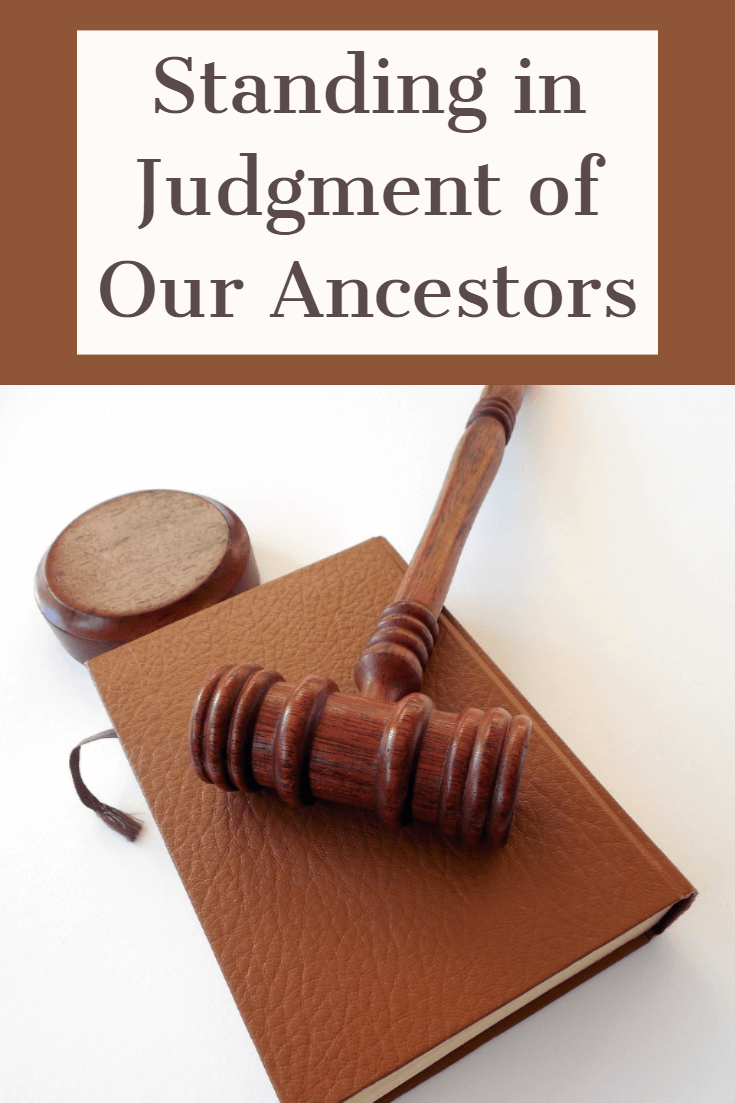
Here’s my question: should I write down that my great-grandfather was prejudice against certain people to preserve this part of his character or should I let this information fade into history?
As genealogists we are always trying to get a full view of the person we are researching – past the census records, military service paperwork, and wills – and into the real person and personality. So, I now have a more broad view of my great-grandfather, but it’s negative. Should I preserve this character flaw in my ancestry notes?
I‘m conflicted about what to do. Maybe if this was a further distanced relative I would have an easier time brushing aside this prejudice but I’m having a hard time with the “right thing to do.” Any advice would be wonderful! As a side note I will tell you that in the following generations this mans’ children and grandchildren have married Irish and Jewish spouses. Haha. I guess the “saying” was never echoed by his descendants! Thanks, Jennifer
Judgment of Our Ancestors

You also asked – Should I preserve this character flaw in my ancestry notes?
And there’s the slippery slope. I believe that we, in this modern era, should avoid sitting in judgment of ancestors who are not here to defend themselves. We don’t want to presume that we are in a position to decide how wrong “the crime” is. We certainly don’t want to be negatively prejudiced against others ourselves, but it is impossible to put oneself in another’s shoes in a differing time and circumstance.
Deciding to Write the Whole Story
In cases where you have secured substantial evidence that a negative story is true, you still have a choice to make. When I come across particularly sensitive or negative information about an ancestor, and before I make it public, I ask myself, “who will this help and who will it hurt?” Does adding it to the family history enrich it? Is there anyone living today who might be hurt? If someone stands to be injured, but you’re set on capturing the story, I encourage you to do so privately for your own records and of course, cite all of your sources.
- Be sure to cite your source – who told you the story and when. The reader can decide how much weight to give the information.
- Let your readers know your reason for sharing the story in the first place. Genealogy Gems blogger Amie Tennant recently read a family history that included a horrible childhood memory. The writer stated it was important to put the family dynamics in full view so that other stories would be seen in the “right light.”
- If naming everyone in the story will cause hurt or embarrassment, consider documenting the essence of the story without naming names.

About the Instructor
Lisa Louise Cooke is the producer and host of the Genealogy Gems Podcast, an online genealogy audio show and app. She is the author of the books The Genealogist’s Google Toolbox, Mobile Genealogy, How to Find Your Family History in Newspapers, and the Google Earth for Genealogy video series, and an international keynote speaker.
Disclosure: This article contains affiliate links and Genealogy Gems will be compensated if you make a purchase after clicking on these links (at no additional cost to you). Thank you for supporting Genealogy Gems!
This article was originally published on August 22, 2016 and updated on April 29, 2019.
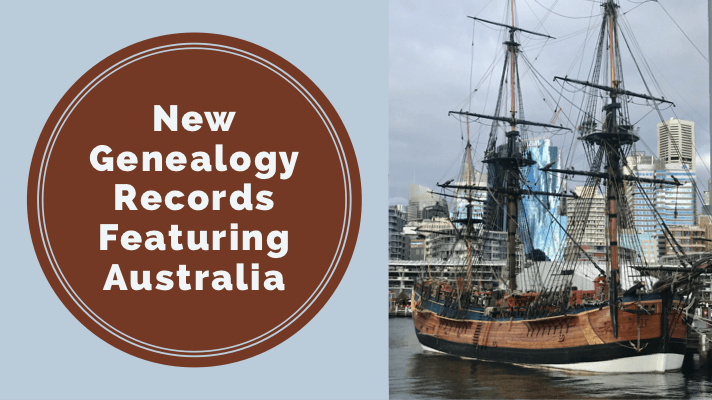
New & Updated Genealogy Records Online Featuring Australia and China
Australian genealogy records are featured this week in new and updated collections online. Findmypast has two sets of records for Queensland and at FamilySearch, you can explore a big update to their free collection of immigrants ship papers.
Also featured this week is the launch of a new website supporting Chinese genealogy research and research services. Finally, we head to Ancestry.com for a new collection of church records for Kent, England.
Featured: New & Updated Australian Genealogy Records

If you’ve got Australian ancestors, you’ll be delighted by these new and updated genealogy collections. Genealogy Giant Findmypast is known for British and Irish records, but they’ve been working hard to expand their offerings to cover other related countries including Australia. This week, they’re featuring two collections for Queensland, Australia that you will definitely want to explore!
WWI Queensland Soldier Portraits, 1914-1918
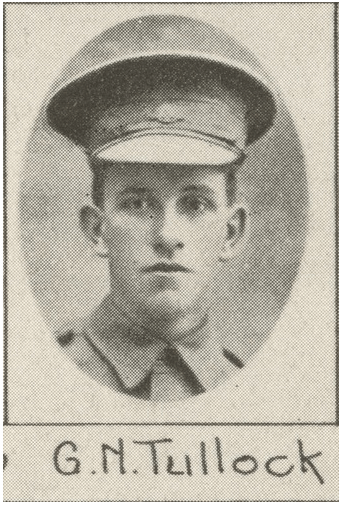
G.N. Tullock, one of the soldiers photographed in The Queenslander Pictorial, supplement to The Queenslander, 1917.
There is also an updated genealogy records collection for Australia at FamilySearch this week.
South Australia, Immigrants Ship Papers, 1849-1940
“Immigrant ships papers containing a record of births and deaths aboard, 1849-1867 and 1873-1885. Indexed records in the collection include passenger lists arriving and departing from South Australia.
Information on images varies but may include ship’s name, master’s name, tonnage, where bound, date, port of embarkation, names of passengers, ages, occupation, nationality, and port at which passengers have contracted to land.” Click here to browse this collection.
New Chinese Genealogy Resource
A new site has launched that may help genealogists with Chinese ancestors. Beijing-based genealogy site My
China Roots recently launched in open beta, allowing users to search its proprietary database for lost roots.
From the recent press release: “Founder and CEO, Huihan Lie, was born and raised in the Netherlands with family from
Indonesia. Huihan came to China to seek out his roots and in the process discovered how challenging the journey to find one’s roots could be. After tracing his family back over 100 generations he set out to make it easier and more accessible to others as well.
‘I’m thrilled about this crucial foundation of our online platform, the first of its kind to give Overseas Chinese access to historical records and technology to connect with their roots,’ says Huihan, ‘we are now adding records by the day!’
With a simple, English language-based search using surnames and ancestral locations, users can find clan history books known as zupu. Users also receive search tips and learn about the historical context of their ancestors’ lives in China.”
While My China Roots primarily features research services, you can access the Beta search function by selecting it from the menu at the top (shown below):
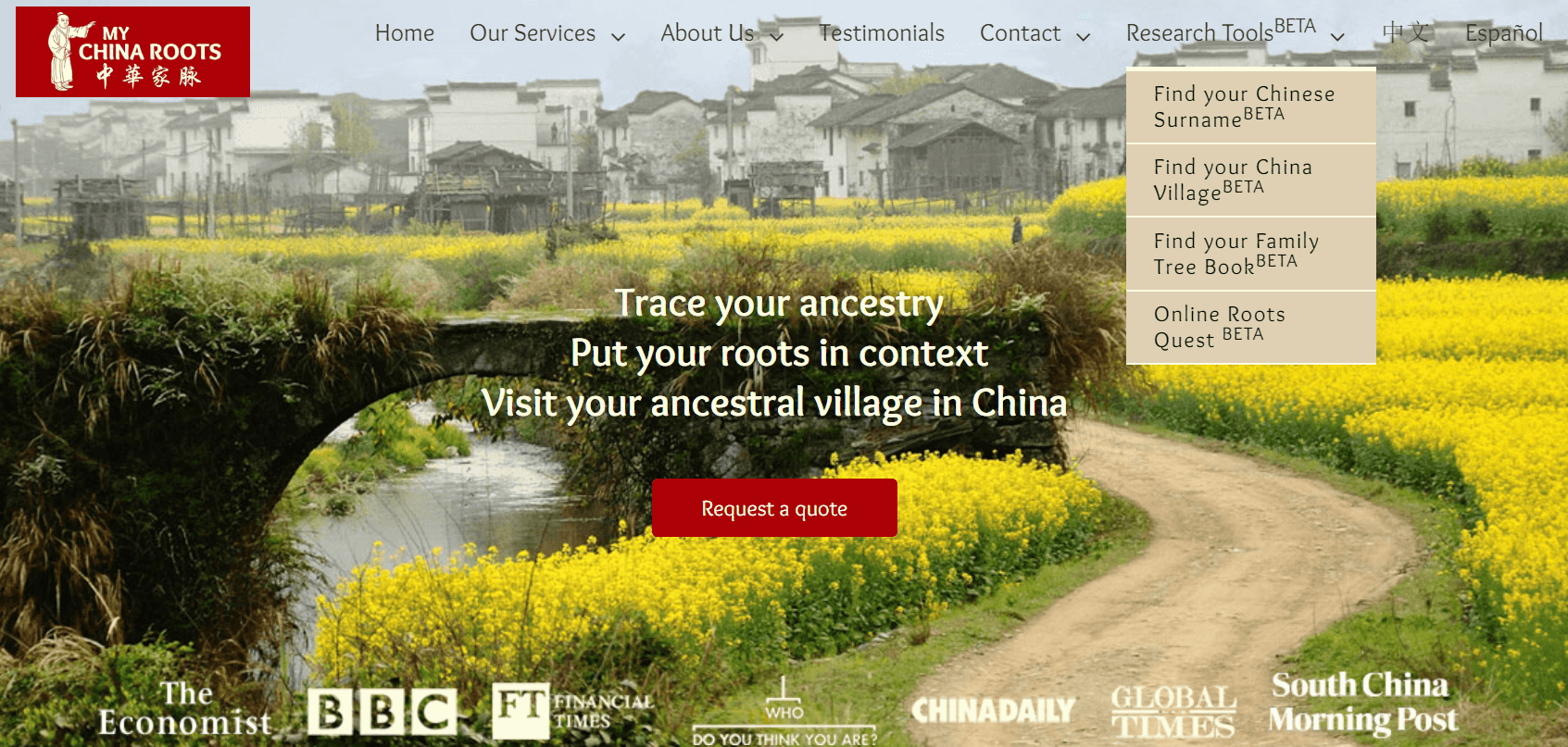
New Church Records for Kent, England
Ancestry.com has a new collection for Kent, England, Church of England Baptisms, Marriages, and Burials, 1538-1914. Here are some of Ancestry’s tips for searching these records:
- To narrow your search, estimate birth dates using information found in the Census and in other records.
- Narrow your search for marriage records by looking at the age and birthplace of the first child. This information can also be found in Census Records. Start your search a year or two prior to the child’s birth and gradually widen your search back (and forward) in time until you locate the record.
- Track your ancestor year to year in City Directories to help zero in on death dates and places. Husbands who predecease their wives will typically stop being listed after death and you’ll often find the wife in his place, listed as “widow.”
- Court records like wills can help you estimate death dates.
Top Tips for Beginning Genealogy
Beginning your genealogy research is challenging, so it’s important to know the top tips on how to get started.
In this video, Amie Tennant and Lisa Louise Cooke discuss where to start, strategies for interviewing family members, and what to do with that information. Here are their top tips for how to set yourself up for genealogical success:
Tip #1: Start with yourself and work backward.
Tip #2: Interview relatives closest to you.
Tip #3: Then verify that information by through records.
Tip #4: Take one generation at a time.
Even if you’re not a beginner, it can be extremely helpful to get a refresher on these core principles of good genealogy research! That’s why I recommend Lisa’s free podcast Family History: Genealogy Made Easy. This is a step-by-step series for beginning genealogists—and more experienced ones who want to brush up or learn something new. You can listen online or find it on your favorite podcast app!

Lacey Cooke
Lacey has been working with Genealogy Gems since the company’s inception in 2007. Now, as the full-time manager of Genealogy Gems, she creates the free weekly newsletter, writes blogs, coordinates live events, and collaborates on new product development. No stranger to working with dead people, Lacey holds a degree in Forensic Anthropology, and is passionate about criminal justice and investigative techniques. She is the proud dog mom of Renly the corgi.
Disclosure: This article contains affiliate links and Genealogy Gems will be compensated if you make a purchase after clicking on these links (at no additional cost to you). Thank you for supporting Genealogy Gems!




